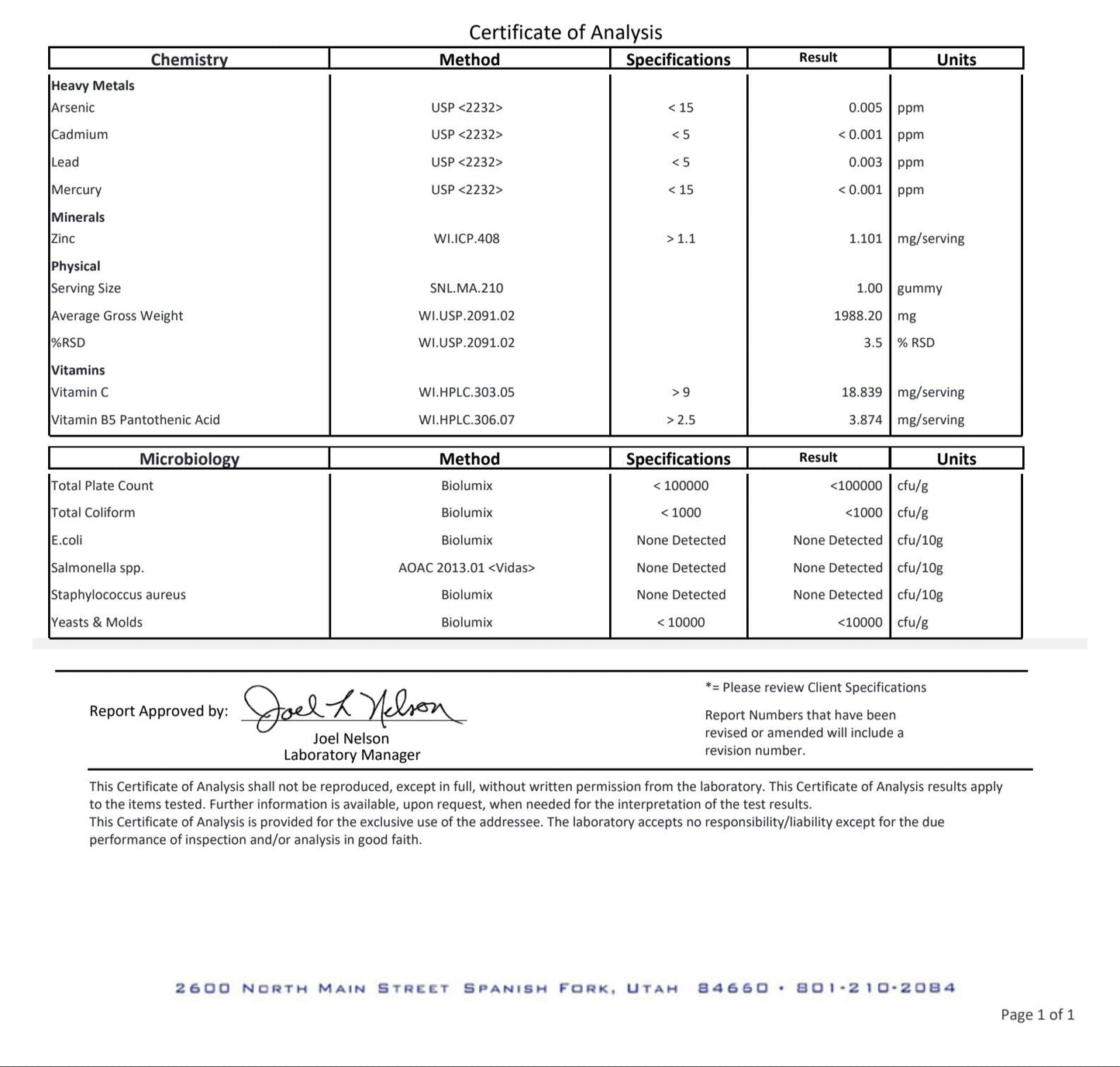Vitamin A
May support vision health, skin health, immune health, and increases antioxidant support (182, 183).
May support antioxidant function via decreased inflammatory cytokines (inflammation), decreased reactive oxygen species, and increased L-glutathione production (master antioxidant) (182, 183).
May support visual health via increased amounts of plasma vitamin A in macular (eye) tissues (182,183).
Vitamin C
May support immune, cardiovascular, skin, cognitive, fat burning, and digestive health (97, 98).
May support immune health via increased oxidant, free radical scavenging, and fueling neutrophilic (immune cell) activity in chemotaxis, phagocytosis, and microbial killing (97,98).
May support fat burning by increasing carnitine biosynthesis (molecule required for mitochondrial fatty acid oxidation) (97,98).
May support accelerated bone healing after a fracture, increased type I collagen synthesis, and reduced oxidative stress (inflammation) (98).
Vitamin D
May support exercise performance, immune health, muscle growth, optimal bone health, hormonal health, immune function, increased sexual health, cardiovascular health, glucose tolerance, increased strength, and positive mood (77,78,79)
May support hormonal health via high amounts of vitamin D receptor (VDR) activity in hormone based negative feedback loop reactions (77,78).
May support cardiovascular health via improved absorption of calcium, reduced atherosclerotic activity, stimulating cardiomyocytes, and improved vascular health (77,78).
May support exercise recovery via reduced post exercise inflammation and muscle damage (77,78).
May support sexual health via increased activity of Vitamin D receptor activity of testosterone production (79).
May support immune function via decreases of inflammatory cytokines and aiding immune cells (77,78).
Vitamin E
May support immune function, cognitive health, cardiovascular health, and bone health (204,205,206,207,208)
May support immune health via neutralizing free radicals and reactive oxygen species, and increased T lymphocyte-mediated immune function (204).
May support cardiovascular health via reduced cholesterol (204).
May support cognitive function via reduced oxidative stress, inflammation, and DNA damage of neuronal tissues (208).
Vitamin B6
Serves as a cofactor in more than 150 enzymatic reactions associated in blood sugar regulation, immunity, cardiovascular function, neuronal health, metabolic, and digestive health (38, 40).
May support reduced plasma glucose (blood sugar levels) via inhibiting the activity of small-intestinal α-glucosidases (enzymes associated with glucose metabolism) (39).
Functions as an antioxidant by counteracting the formation of reactive oxygen species (inflammatory markers) and advanced glycation end-products (38,40).
May support blood sugar regulation in women with gestational diabetes (40).
Cofactor for enzymes involved in DNA metabolism (40).
Vitamin B12
Supports proper DNA synthesis, folate cycle function, energy production, cognitive function, and immune health (51,53).
Aids as an antioxidant via direct scavenging of reactive oxygen species (inflammation), preserving l-glutathione levels (master antioxidant), and reducing oxidative stress (51).
May prevent vitamin b-12 deficiency diseases such as anemia, neurodegenerative disease, cardiovascular disease, and osteoporosis (53).
Folic Acid
May support proper cell growth and DNA synthesis (65).
Vitamin B5
- May support energy production, cell growth, cell repair, cognitive function, increased hippocampal volume (memory), and optimized bioenergetics (burning of carbohydrates, fat, and protein) (96).
Biotin
May support conversion of food into cellular energy, hair health, skin health, and cognitive function (213,214).
May support glucose breakdown into skeletal muscle tissue (213,214).
Zinc
May support immune function, skin health, cognitive function, and vision (172,173).
May support stimulation of the innate and adaptive immune system (172,173).
May support the activation of lymphocytes and activation of innate and T cell-mediated immunity (172,173).
May support cognitive function by modulation of neuronal signaling in areas of the brain associated with memory and learning (hippocampus) (172,173).
Inositol
May support liver detoxification, reduced prevalence of metabolic syndrome, and aids as an antioxidant (221).
May supported reduced prevalence of metabolic syndrome via reduced levels of triglycerides, total- and LDL-cholesterol (221).
May support antioxidant function via reduced levels of reactive oxygen species and inflammatory markers (interleukin 6) (222).








